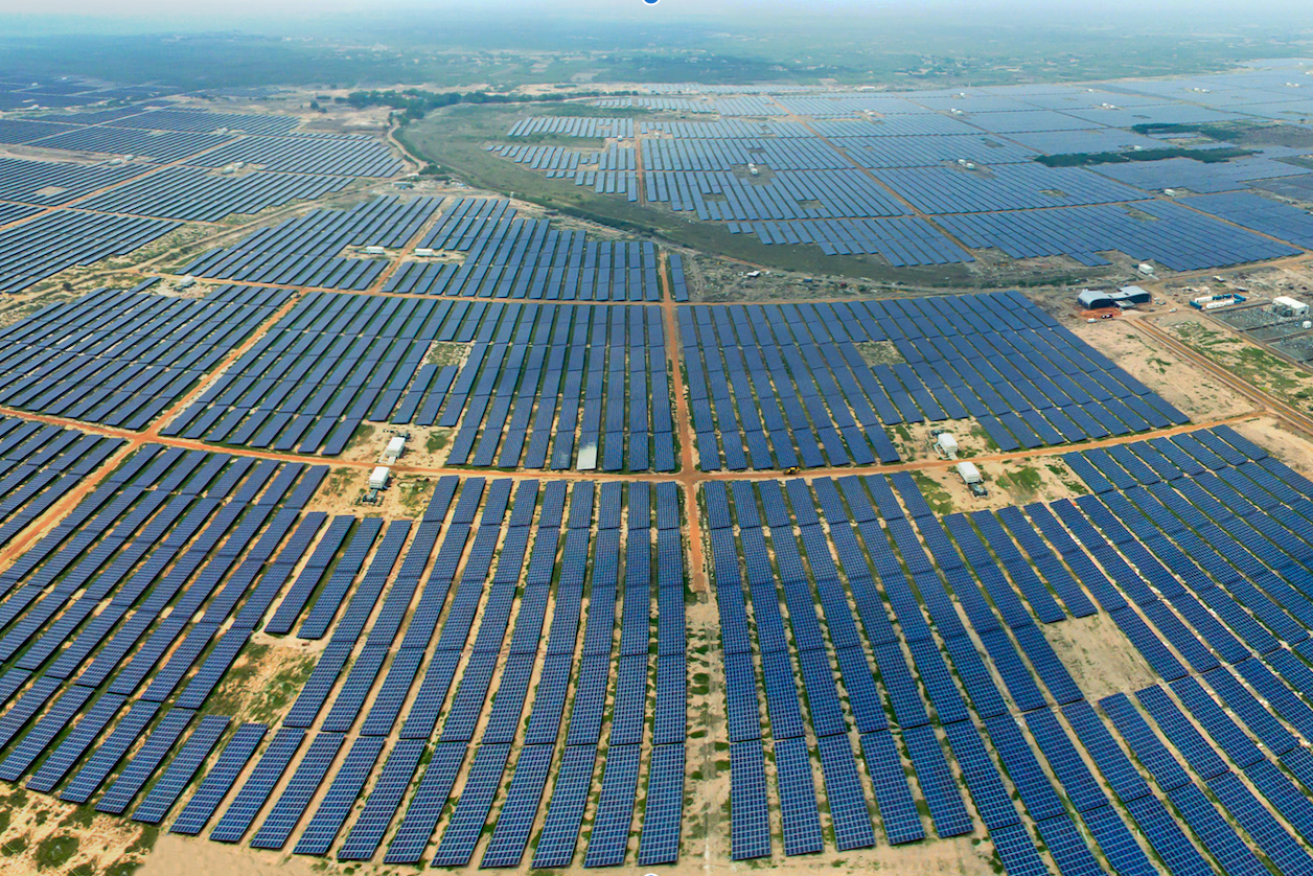How an $8 billion solar contract explains Adani’s new love for green energy
The reason Adani has been talking up a green energy revolution has become clear after the company won a $US6 billion ($A8.6 billion) solar contract in India that has been described as the world’s biggest.


One of Adani's existing Indian solar farms, which was the world's biggest when it was developed in 2018
Just days after Adani chairman Gautam Adani said there was a need for a low-emission future, the company announced it had been awarded a contract to build a massive 8 gigawatts of solar projects along with a manufacturing facility that will create 2GW of module capacity.
Adani is better known in Australia for its Carmichael coal project in Queensland’s Galilee Basin, which has faced eight years of protests, political opposition and legal disputes because of its potential impact on opening up a new coal basin and the potential impact it would have on climate change.
Adani also developed the Rugby Run solar farm near Moranbah and is planning another in Whyalla, South Australia.
Adding to the confusion over the two apparently conflicting businesses Gautam Adani said it was a foregone conclusion that renewables would become the cleanest and most economical source of energy, but also claims two business models will be needed: one based on renewables and the other on fossil fuels.
Adani said the contract from the Solar Energy Corporation of India was the largest of its type in the world and would create 400,000 direct and indirect jobs and displace 900 million tonnes of carbon dioxide over its lifetime.
The Australia Institute has estimated that emissions from the coal extracted from the Carmichael mine would create an average 79 million tonnes of CO2 a year. If all the coal in the Galilee Basin was burned, 705 million tonnes of carbon dioxide would be released each year while the mine itself would create 240,000 tonnes of CO2.
Adani said India’s Prime Minister Narendra Modi made a commitment at the 2015 United Nations Climate Change Conference in Paris that India would lead the Climate Change revolution and will in fact fulfill the majority of its COP21 commitments nine years ahead of the 2030 deadline.
“In today’s world, climate adaptation cannot be considered independent of economic development priorities and both job creation as well as decarbonisation must be simultaneous objectives.,” he said.
“The fact that renewable power will transition into becoming the world’s cleanest and most economical fuel is a foregone conclusion and the Adani Group intends to play a leading role in this journey.”
“Based on the award agreement the 8 GW of solar development projects will be implemented over the next five years. The first 2 GW of generation capacity will come online by 2022 and the subsequent 6 GW capacity will be added in 2 GW annual increments through 2025.
“The projects will include a variety of locations, including a 2 GW single-site generation project that is tied for the rank of the largest single-site project announced globally. The solar cell and module manufacturing capacity of 2 GW will be established by 2022 and along with the existing 1.3 GW of capacity will further consolidate the group’s position as India’s largest solar manufacturing facility.”
The deal will mean Adani will now have 15 GW capacity under operations, construction or under contract.












